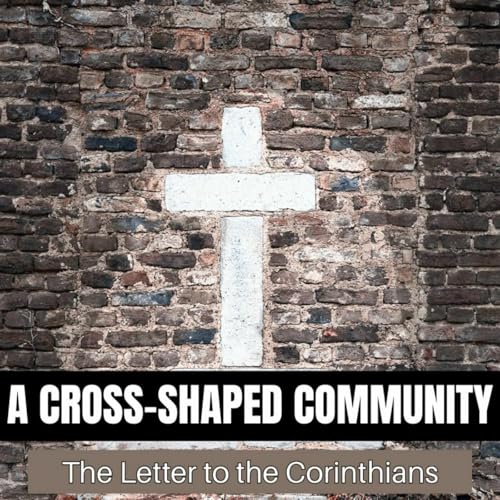What does it truly mean to be spiritual? This message challenges us to reconsider everything we thought we knew about spiritual maturity. Drawing from Paul's letter to the Corinthians, we discover that the early church struggled with the same misconceptions we face today. They confused worldly wisdom with God's wisdom, mistaking eloquence, knowledge, and status for true spirituality. Paul confronts this head-on by pointing to the crossan image that seemed like utter foolishness to the world but reveals God's ultimate power and wisdom. True spirituality isn't measured by how many Bible verses we memorize, how eloquently we pray, or how impressive our religious credentials appear. Instead, it's about being transformed by the Holy Spirit to see the world through God's upside-down economy. The spiritual person understands that Christ crucified represents a radically different way of livingone marked by self-giving love, sacrifice, and service rather than self-promotion and power. This message invites us to examine whether we're pursuing the spirit of the world or the Spirit of God, whether we're chasing relevance by worldly standards or embracing the seeming irrelevance of the cross. As we navigate a culture obsessed with success, influence, and achievement, we're called to a cross-shaped life that may look weak but contains the only true power that transforms lives and communities. How does our culture's definition of power and success differ from the 'cross-shaped life' that Paul describes, and where do you see these competing definitions at work in your own life? In what ways might we be measuring spirituality by worldly standards (knowledge, eloquence, influence, growth) rather than by the Spirit's work of conforming us to Christ crucified? When have you been tempted to seek relevance or influence by adopting the world's values rather than being willing to be 'thought irrelevant' for the sake of God's kingdom? What would it look like practically for our church community to operate in the 'upside-down economy' of the cross rather than the economy of self-promotion and achievement? How does the fact that only the Spirit can reveal God's wisdom challenge our reliance on human education, philosophical systems, or self-help approaches to spiritual growth? Paul describes himself and the Corinthian church as 'the scum of the earth.' Why is this identity so radically different from what we typically aspire to, and what would embracing it require of us? In what areas of your life are you most tempted to define success by numbers, growth, or visible results rather than by faithfulness to the way of the cross? How might our assessment of spiritual leaders change if we valued cross-shaped sacrifice and self-giving love over charisma, credentials, or organizational influence? What specific practices or attitudes would need to shift in your life for you to more fully embrace the 'mind of Christ' that sets aside rights and privileges for the sake of others?
Más
Menos
 Feb 22 2026Menos de 1 minuto
Feb 22 2026Menos de 1 minuto Feb 15 2026Menos de 1 minuto
Feb 15 2026Menos de 1 minuto Feb 8 2026Menos de 1 minuto
Feb 8 2026Menos de 1 minuto Feb 1 2026Menos de 1 minuto
Feb 1 2026Menos de 1 minuto Jan 25 2026Menos de 1 minuto
Jan 25 2026Menos de 1 minuto Jan 18 2026Menos de 1 minuto
Jan 18 2026Menos de 1 minuto Jan 11 2026Menos de 1 minuto
Jan 11 2026Menos de 1 minuto Jan 4 2026Menos de 1 minuto
Jan 4 2026Menos de 1 minuto
